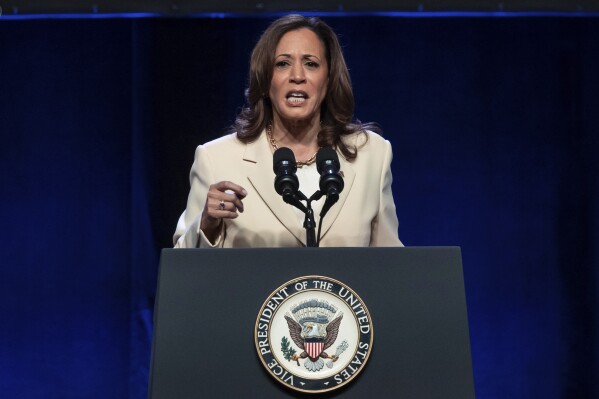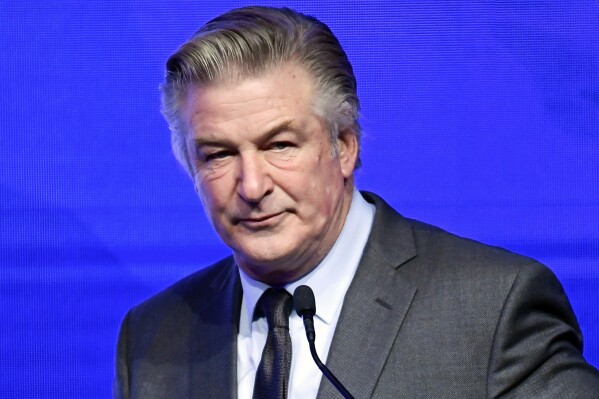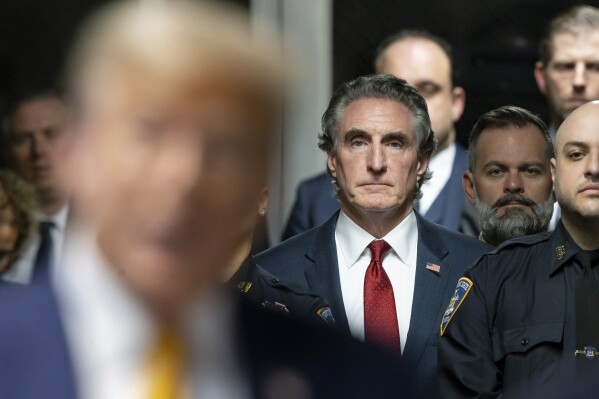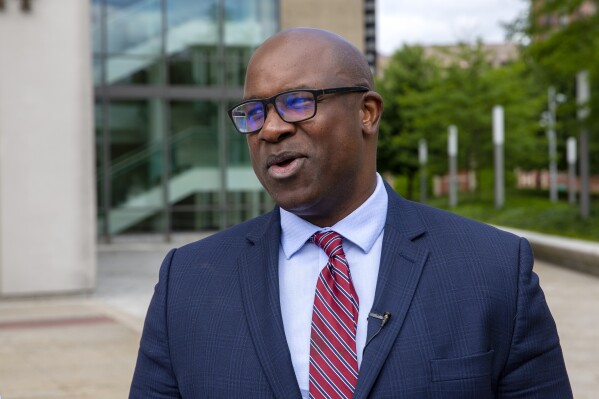It's hard for politicians to cut through. It's even harder when you are leading the fourth largest party in parliament with only 11 MPs.
How do you insert yourself into a conversation that's happening largely between the Conservatives and Labour, with a sprinkling of Reform's Nigel Farage in the mix?
Well, Liberal Democrat leader Sir Ed Davey has done it two ways.
The first through endless silly stunts - be it repeatedly falling off a paddleboard on Lake Windermere or riding a giant waterslide in his swimming trunks in Somerset.
But the second, and far more profound, way to reach voters has been to open up about his own childhood, caring for his dying mother, and now, as a father himself, raising a disabled son.
Keep up with all the latest news from the UK and around the world by following Sky News
Tap hereThe decision to make a highly personal election broadcast, which showed Sir Ed at home with his 16-year old son John, as well as footage of him at his childhood home in Nottingham talking about his mother dying of breast cancer when he was 15, has, in part, been to highlight the world of carers.
But it has also been to try to show a side of this political leader the electorate don't know.
Since the short film was released three weeks weeks ago, it has been viewed over 6.4 million times on the leader's X feed. That is what you call cut through.
In an interview with Sky News at the Daveys' family home in Kingston, Sir Ed and his wife Emily Gasson explained that revealing the caring responsibilities they both shared at home for John, who has an undiagnosed neurological condition and needs round-the-clock care, was a "gradual thing".
"We started talking about it quite gently in my first year or so of leadership [and] we got this reaction from people saying, 'thank you for talking about it', and we sort of felt we had a duty to," explained Sir Ed Davey, as he sat holding Emily's hand in their back garden.
"I've talked more about my whole life as a carer, because I lost my father when I was four. So my mum was widowed, aged 36 with three boys under 10. Then she got ill.
"When I was nine, she told us she had breast cancer, and my little brother and I nursed her until she died when I was 15, so I was a young carer.
"And then we had our first child John and we realised after about a year that he was going to be severely disabled. So, I have had a caring role in different ways in my life. And it's quite clear millions of others do too."
Read more:
A simple guide to all the party's policies
Why do you need ID to vote?
The party leader continued: "Carers take a huge burden off the NHS but get very little support and they're not recognised. And it [has] almost become part of our political thinking - to talk about our experience and hopefully touch people's lives, but also make it quite a serious point.
"People need the care and support when they're caring, but also if they do, that can be good for the rest of society."
Emily, who is also a local Lib Dem councillor, said she doesn't use social media, but wasn't surprised that the film of Sir Ed at home with John went viral.
"I think I can understand why people are being attracted by it, because I'm sure... so many people have had a similar experience or a member of their family [have had] a similar experience, so you can understand why it touches people in so many different ways," she said.
"But as I say, we're not unique in any way, shape or form... this story or what happens to people when they have [this experience] is never told. It's never spoken about. It's, you know, people just get on with it.
"A lot of the thing about being a carer is it's absolutely exhausting. It's physically exhausting. It's emotionally exhausting. By the end of the day, you're finished, you know, 9pm you're absolutely finished. So your voice is not going to be heard because you're just exhausted."
Having told their story, Sir Ed put health and care at the heart of the Lib Dems' manifesto launch two weeks ago, with an £8bn package of services in England.
Plans included giving everyone the right to see a GP within seven days, as well as free personal care for older or disabled people at home.
Sir Ed said the proposals would be funded by reversing tax cuts for banks, and closing tax loopholes exploited by the wealthiest individuals, which he claimed would raise £7.2bn.
He told me this could be achieved by investing £1bn in HMRC processes - although independent experts have been less sure, with the IFS think tank saying there was "uncertainty" around whether more resource into tax collectors would really squeeze out much more.
With the Lib Dems eyeing a return to being the third largest party in parliament once more - and the latest MRP polling putting them on 48 seats - Sir Ed said he wanted to champion carers and social care in the next parliament, and wanted to see a cross-party commission to tackle the social care issue once and for all.
"This is a big issue, a long term issue," he said. "[We need] some proper work where people come around the table and say, 'we have to do this - there are consequences, but we're all going to sign up to it'.
"And I think if you don't do that, you won't get the political commitment, won't get consensus, and you won't bring people with you."
As for his campaign, the Lib Dem leader has come under some criticism for all the stunts he's pulled off, with questions around whether in the quest for more exposure, he was throwing away credibility.
Sir Ed roundly rejected that, telling me that people were "fed up with politicians".
He added: "I think [the public] are disillusioned. Politicians haven't reached out to people. And I think by showing you're a normal person, whether it's the stunts and having fun, as well as the serious message and the stuff about being a carer, I think it shows I get it."
Another question mark over the Lib Dems is their record in government in the coalition years, as the party who propped up the Conservatives and went along with austerity cuts.
Sir Ed faced difficult questions over it from a live audience at the BBC's Question Time event last week.
Asked it he regretted going into coalition, he demurred and talked about what he thought the Lib Dems achieved in government - be it progress on renewable energy or same sex marriage.
But he also acknowledged the experience broke the bond of trust between his party and the public, which has taken years to rebuild.
In 2010, Nick Clegg's Lib Dems had 57 MPs. In the 2019 election, the party had its worst performance yet and returned just 8 MPs (they got to 11 by the end of the parliament via by-elections).

"You know, I lost my seat in 2015," said Sir Ed. "When I became leader, I said to the party, we need to wake up, we need to wake up and smell the coffee. People had lost trust in us and I got that.
"And so we did two things: we are not going to promise something in this election we can't deliver and we realised we needed to rebuild trust and listen to people. What are their problems?
"And so our whole manifesto has been built around what people are telling us."
After a very difficult decade, Sir Ed is hopeful for this election as the party targets 85 seats up and down the country where the Lib Dems are second behind the Conservatives - with 40 of those across the Blue Wall in the South East and a further 25 in the South West of England.
He said: "In the Home Counties and the West Country, we're finding - and this has never happened before in my lifetime - people who have always voted Conservative saying they're going to vote Liberal Democrat, because they can't bring themselves to vote Conservative.
"That is different, and that's why I think we can do very well at this election."
Disclaimer: The copyright of this article belongs to the original author. Reposting this article is solely for the purpose of information dissemination and does not constitute any investment advice. If there is any infringement, please contact us immediately. We will make corrections or deletions as necessary. Thank you.



